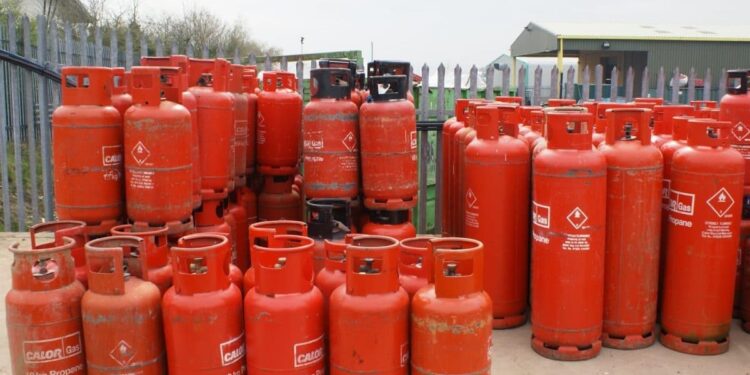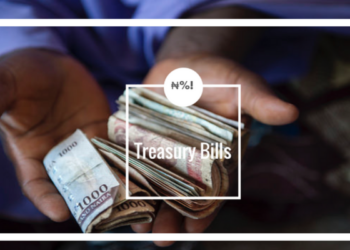The sharp rise in cooking gas prices across Nigeria is posing a serious threat to the country’s clean energy transition agenda.
With costs spiraling beyond the reach of many households, experts warn that millions of Nigerians are reverting to firewood and charcoal, a move that undermines both environmental sustainability and public health.
Field interviews by Nairametrics across Abuja’s Karu, Mararaba, Nyanya, and Gwarimpa areas reveal that Liquefied Petroleum Gas (LPG), popularly known as cooking gas, has recorded a steep price increase in recent weeks.
As of late October, a 12.5kg cylinder that sold for between N9,000 and N10,000 in early September now costs between N15,000 and N16,500, depending on the area. At A.A Rano filling station along the Keffi–Abuja Expressway, LPG retailed at N1,200 per kilogram, while outlets like Onas Gas in Nyanya charged as high as N1,600/kg.
In Lagos, price fluctuations have also been pronounced. Earlier in October, residents paid between N2,500 and N3,000 per kilogram.
However, recent checks show a partial decline, with rates in Apapa, Ketu, Fadeyi, Somolu, Bariga, and Surulere averaging between N1,300 and N1,500 per kilogram.
Filling stations along Ikorodu Road, Palmgrove, Anthony, and Apapa now sell between N1,100 and N1,300/kg. Consequently, the cost of refilling a 12.5kg cylinder dropped from about N27,500 to around N20,500 as of October 27.
Small businesses and food vendors bear the brunt
The rising prices have hit food vendors and small restaurant owners particularly hard. Mrs. Blessing Ogar, a food vendor in Mararaba, lamented that cooking gas, once considered the cheapest and cleanest option, has now become a luxury.
“I tried to return to using charcoal, but even that is becoming expensive,” she said.
- Similarly, Ms. Esther, another vendor in Gwarimpa, said she recently paid N18,125 to refill her 12.5kg cylinder, a sharp increase from N15,000 previously.
“Customers will leave if I raise my prices too much. At this point, profit margins are disappearing,” she added.
- For civil servants and low-income earners, the impact has been equally distressing. Mr. Musa Abdul, a resident of Nyanya, said,
“I used to fill my cylinder with N8,500 last year. Now it’s N15,000. How are ordinary people supposed to survive this?”
Retailers defend price hike
Meanwhile, gas retailers insist they are not responsible for the surge, attributing the increases to higher depot and transportation costs.
“If I get gas from the depot at N1,000, I can’t sell it at that same price. We sell what we buy,” explained Mr. John Okafor, a retailer in Nyanya.
He noted that the cost of refilling a truckload of gas has risen dramatically, threatening the survival of small operators.
“Transportation and depot charges are killing small businesses. Without government support, many of us will close shop,” he warned.
Some other gas retailers also shared similar sentiments in Mararaba axis.
Experts call for FG’s urgent intervention
Energy and environmental experts have warned that the persistent rise in Liquefied Petroleum Gas (LPG) prices could jeopardize Nigeria’s clean cooking and energy transition goals, which aim to ensure that at least 30 million households adopt cleaner cooking fuels by 2030.
- Dr. Bala Zakka, an energy analyst, said the situation reflects a deeper structural failure in Nigeria’s gas policy.
“It is tragic that a country with over 200 trillion cubic feet of proven natural gas reserves is still struggling to make LPG affordable for its citizens,” he said.
“Without strong government intervention, Nigeria’s energy transition targets will become unrealistic.”
- Dr. Nnimmo Brimah, an environmental analyst at Nasarawa State University, noted that Nigeria’s over-reliance on imported LPG and poor investment in local gas processing are major contributors to the crisis.
“Despite having one of the largest natural gas reserves in Africa, Nigeria continues to depend on imports for domestic consumption. This is both unsustainable and economically reckless,” Bassey said.
He urged the Federal Government to accelerate investment in domestic gas infrastructure, promote modular LPG plants, and support local distributors through tax reliefs and incentives.
- Another expert, Mrs. Adaobi Okonkwo, an energy policy analyst, emphasized that the situation calls for an urgent review of fiscal policies affecting gas production and distribution.
“The high cost of foreign exchange and the removal of energy subsidies have worsened LPG affordability. The government must work with private stakeholders to stabilize prices and ensure access for low-income households,” she explained.
- Environmentalist and director of SafeEarth, Dr. Umo Bassey, noted that the government’s failure to prioritize domestic gas supply is crippling its own environmental commitments.
“We are supposed to be transitioning to cleaner energy sources, but current realities show that affordability is a huge barrier. Without access, the transition plan is just a slogan,” he warned.
FG to intensify clampdown on hoarders
Earlier this month, Nairametrics reported that Minister of State for Petroleum Resources (Gas), Ekperikpe Ekpo, has ordered a clampdown on marketers hoarding or exploiting consumers following the recent surge in the price of cooking gas.
According to him, the sharp increase in price was caused by two main factors: the industrial action by PENGASSAN at the Dangote refinery and the ongoing maintenance activities at the Nigeria LNG Train 4 facility.
The minister explained that the strike by PENGASSAN at the Dangote refinery temporarily halted LPG loading, while the maintenance work at NLNG reduced the volume of gas available in the domestic market.
Nigeria’s energy transition plan under threat
Nigeria’s Energy Transition Plan, launched in 2021 and updated in 2022, seeks to achieve net-zero carbon emissions by 2060, with gas serving as the nation’s bridge fuel. The plan also targets the adoption of clean cooking energy by 30 million households by 2030.
However, with prices spiraling and households reverting to firewood and charcoal, experts fear that Nigeria’s energy transition goals are slipping out of reach.
“If clean energy becomes a privilege for the rich, Nigeria’s sustainability efforts will collapse,” warned Dr. Brimah. “The government must treat the cooking gas crisis as an emergency — not just an economic issue, but a public health and environmental one.”
Until decisive action is taken to stabilize the market and expand local gas production, millions of Nigerian households may continue to suffocate under the weight of rising energy costs, and the country’s clean energy dream may remain just a dream.
What you should know
The Federal Government had said Nigeria’s Energy Transition Plan would necessitate $1.9 trillion in expenditures until the year 2060.
Also, in 2023, President Bola Tinubu said that the country’s energy transition plan calls for an annual investment of $10 billion.
Additionally, he emphasized that Nigeria needs an annual investment of $17.7 billion to achieve the unconditional targets outlined in the country’s Nationally Determined Contributions (NDCs).























